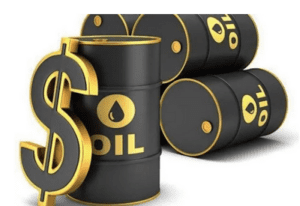
Nigeria boosts OPEC’s Dec. crude oil production by extra 50,000bpd — Report
The Organization of Petroleum Exporting Countries (OPEC) crude oil production maintained a steady production of crude oil with an average of 28.05 million bpd in December 2023 with Nigeria boosting output by an extra 50,000 bpd, a survey by Bloomberg has found.
OPEC sustained supply restraints from countries like the United Arab Emirates and Angola cutting back on production. However, other countries like Nigeria compensated for the reduction.
Subsequently, OPEC was able to average 28.05 million bpd in December.
“Supply declines from these two members were tempered by increases elsewhere. Nigeria bolstered supplies by 50,000 barrels a day to 1.49 million a day in December, in line with a revised quota that it successfully negotiated for this year,” the report said.
The latest data published by the Nigerian Upstream Petroleum Regulatory Commission (NUPRC) reveals that the country’s daily oil production stands at 1.25 million barrels, with the information conveyed through its “direct communication” channels.
In addition, OPEC also projected that Nigeria would produce 1.5 million bpd in 2024, although the federal government projected the country can produce as high as 2 million bpd this year.
According to Bloomberg, output is anticipated to decrease this month as the OPEC+ coalition implements additional cuts of approximately 900,000 barrels per day. The objective is to prevent a potential surplus and safeguard declining crude prices.
Saudi Arabia is leading this reduction by continuing its current cut.
The UAE also agreed to reduce its oil production by 163,000 barrels per day, and Iraq plans to cut an additional 220,000 barrels per day for the first three months of the year.
In addition, Angola announced its exit from OPEC in December, citing its refusal to accept a reduced limit imposed by OPEC’s leaders, but its output in December eroded by years of underinvestment was in line with the level it had rejected.
Countries like Saudi Arabia, Russia, the UAE, Iraq, Kuwait, Kazakhstan, and Algeria intend to gradually increase production, depending on how the oil market is doing.
OPEC+ wants to produce less oil because the prices have dropped from almost $98 in late September. There are worries about the global economy slowing down in 2024, and there’s an expectation that there will be more oil available than needed.
Additionally, Brazil will become a part of OPEC in January 2024.
In recent days, Nigeria and other African oil producers have expressed unwillingness to significantly slashed production quotas set by OPEC.
In Nigeria, the proposed quota 1.5 million bpd will significantly reduce the country’s chances of attracting more upstream oil investments. Note that, despite the current battle against crude oil theft in the Niger Delta region, Nigeria was able to reach 1.5 million barrels per day in both September and October 2023.
There has also been an unwavering commitment to tackle crude oil theft decisively in the Niger Delta Region



